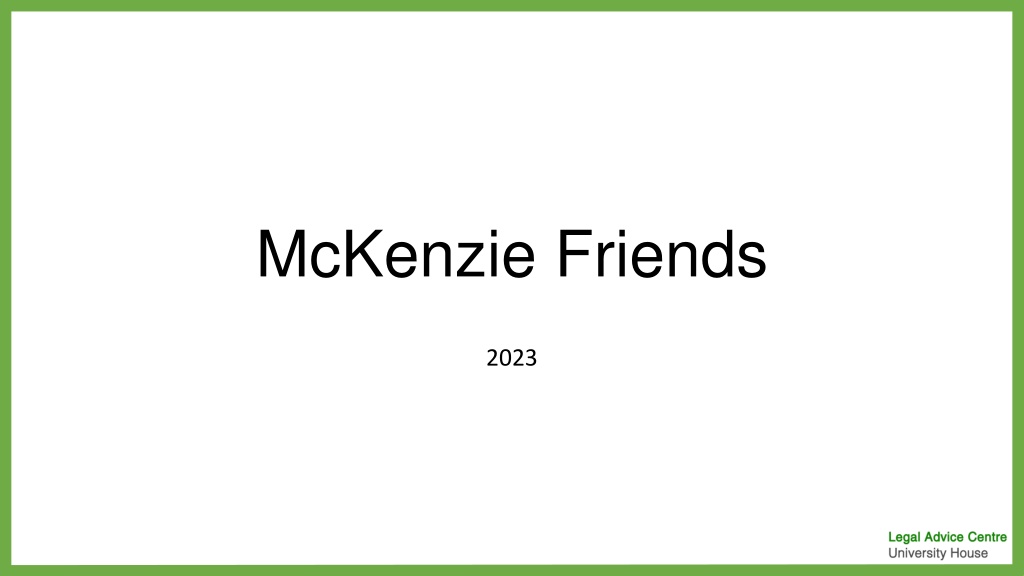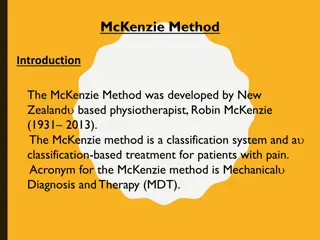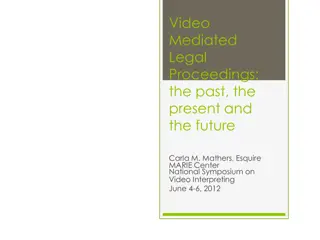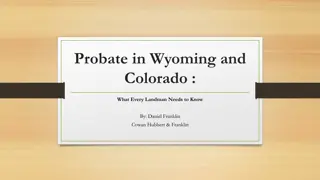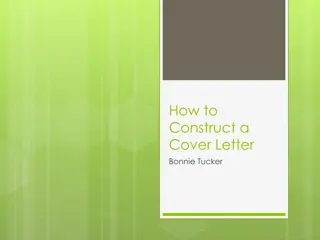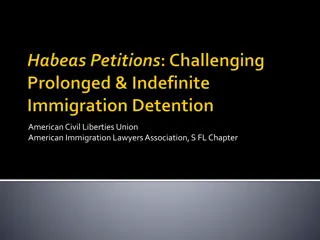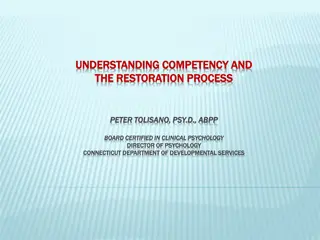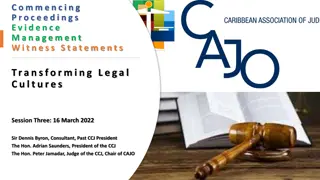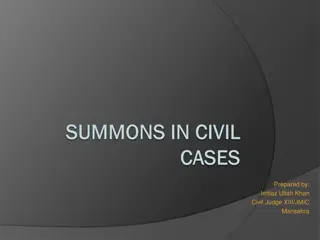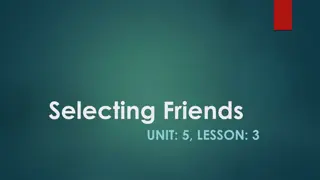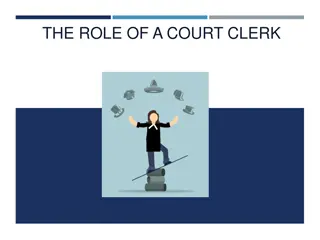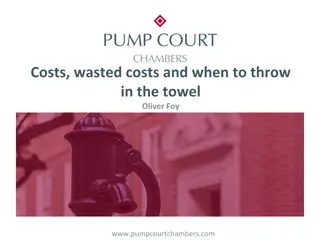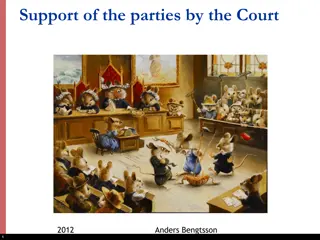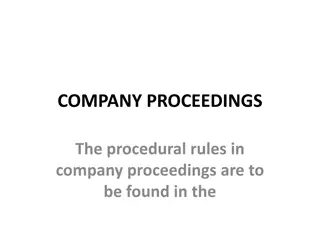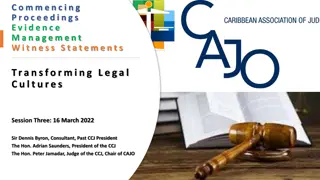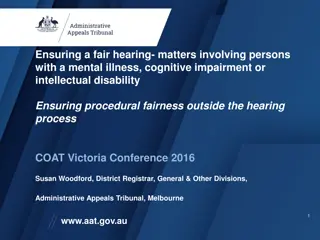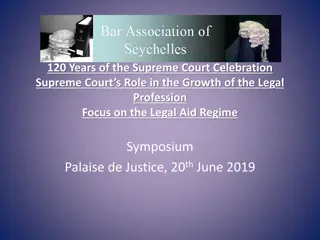Understanding McKenzie Friends and Their Role in Legal Proceedings
McKenzie Friends are individuals who provide lay assistance and support to litigants representing themselves in court. They can offer moral support, take notes, help with case papers, and quietly advise on case conduct. However, they are not allowed to act as agents for the litigants or address the court directly. Litigants must properly inform the court if they wish to bring a McKenzie Friend, and the court has the discretion to permit or deny their presence in proceedings.
Download Presentation

Please find below an Image/Link to download the presentation.
The content on the website is provided AS IS for your information and personal use only. It may not be sold, licensed, or shared on other websites without obtaining consent from the author. Download presentation by click this link. If you encounter any issues during the download, it is possible that the publisher has removed the file from their server.
E N D
Presentation Transcript
McKenzie Friends 2023
Who are McKenzie friends? McKenzie Friends are 'quiet supporters' for a litigant. The term McKenzie Friend originates from A 1970 Court of Appeal case McKenzie v McKenzie (1970) 3 WLR 472 in which it was confirmed that litigants in person (LiPs) have a (rebuttable) right to receive lay assistance in the course of representing themselves.
Duties to be afforded to McKenzie friends In the light of the increase in litigants-in-person in all levels of the civil and family courts the Court has issued guidance concerning the appearance of McKenzie friends in civil and family proceedings. The guidance applies to the Court of Appeal (Civil Division), the High Court of Justice, the County Courts and the Family Court. It is intended to remind courts and litigants of the principles set out in the authorities.
Duties to be afforded to McKenzie friends The parameters of this lay assistance are now outlined in the Practice Guidance, (McKenzie Friends: Civil and Family Courts) [2010] 1 WR 1881 which states that: McKenzie Friends may: provide moral support for litigants; take notes; help with case papers; quietly give advice on any aspect of the conduct of the case
What McKenzie Friends may NOT do act as the litigants agent in relation to the proceedings; manage litigants cases outside court, for example by signing court documents; address the court, make oral submissions examine witnesses
Exercising the Right to Reasonable Assistance A litigant who wishes to exercise this right should inform the judge as soon as possible indicating who the MF will be. The proposed MF should produce a short CV or other statement setting out relevant experience, confirming that he or she has no interest in the case and understands the MF s role and the duty of confidentiality. In Family proceedings where proceedings are in chambers, i.e in private, the litigant is required to justify the MF s presence in court.
Exercising the Right to Reasonable Assistance While the presumption in favour of permitting a MF to attend such hearings, and thereby enable litigants to exercise the right to assistance, is a strong one, the court retains the power to refuse to permit such assistance. The court may do so where it is satisfied that, in that particular case, the interests of justice and fairness do not require the litigant to receive such assistance.
Applying for a right of audience Courts should be slow to grant any application from a litigant for a right of audience or a right to conduct litigation to any lay person, including a MF. This is because: A person exercising such rights must ordinarily be properly trained, be under professional discipline (including an obligation to insure against liability for negligence) be subject to an overriding duty to the court. The court should only be prepared to grant such rights where there is good reason to do so taking into account all the circumstances of the case, which are likely to vary greatly. Such grants should not be extended to lay persons automatically or without due consideration. They should not be granted for mere convenience
Practical Tips - Preparation In LAC cases, you will most likely already be helping the client; You may have helped drafting witness statements, applications, other court papers Discuss with LAC - Find out what is likely to happen Keep LAC informed Find out what outcomes the client wants How will you communicate?
Practical Tips At the Hearing Meet client outside court 1h before hearing If remote, be in touch with client 30 mins before the hearing Register with Usher and check special measures Help with any pre-hearing discussions with other side or barrister/solicitor Be with client during hearing Take full notes Help with documents, understanding, reassurance, procedure Might help with agreeing orders
Practical Tips After the Hearing With client s permission, inform LAC of outcome Write up and share notes with client and LAC Agree orders if not done at hearing Does anything need to be served? What are next steps? Will you help?
